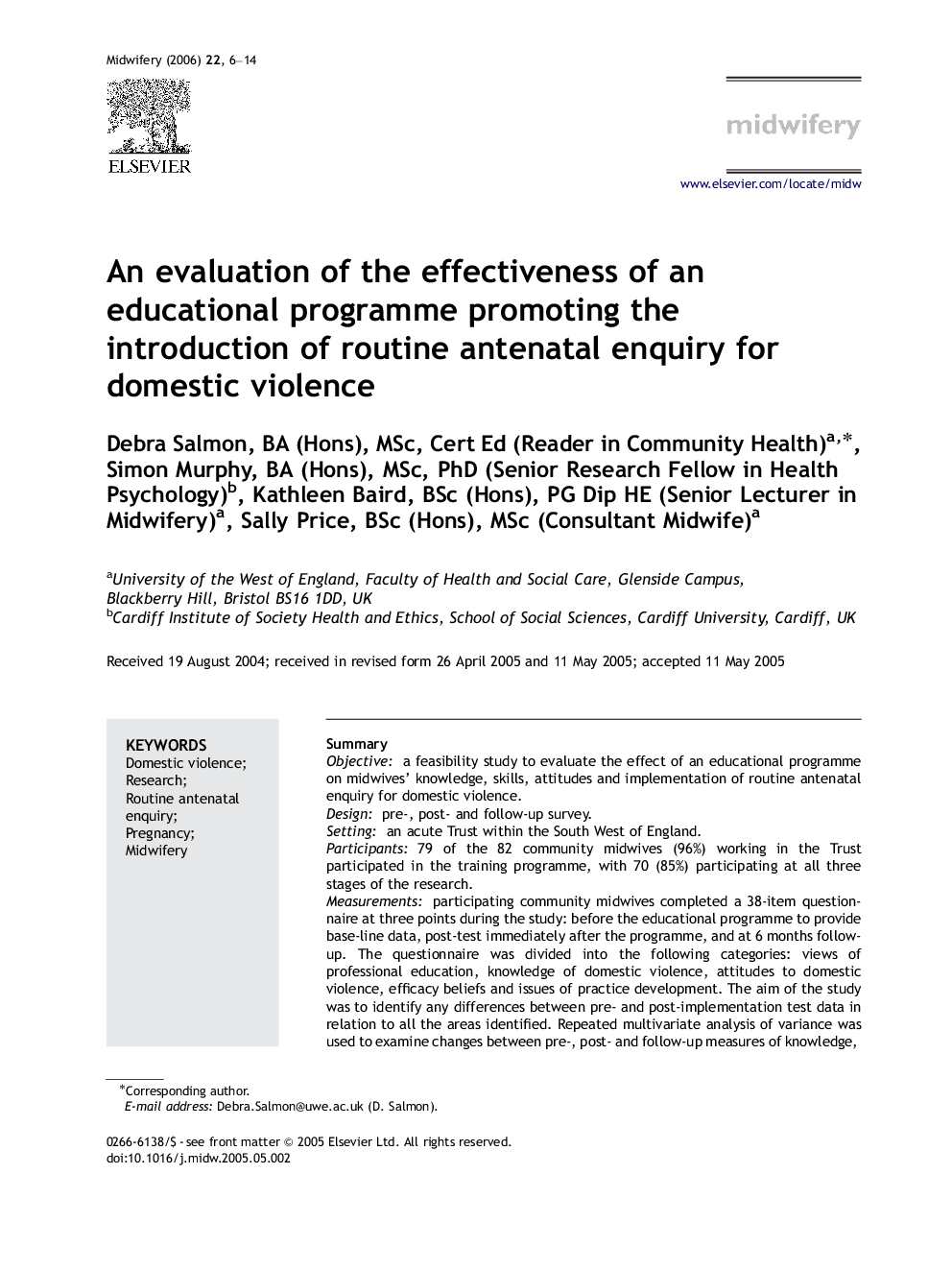| کد مقاله | کد نشریه | سال انتشار | مقاله انگلیسی | نسخه تمام متن |
|---|---|---|---|---|
| 1085538 | 951364 | 2006 | 9 صفحه PDF | دانلود رایگان |

SummaryObjectivea feasibility study to evaluate the effect of an educational programme on midwives’ knowledge, skills, attitudes and implementation of routine antenatal enquiry for domestic violence.Designpre-, post- and follow-up survey.Settingan acute Trust within the South West of England.Participants79 of the 82 community midwives (96%) working in the Trust participated in the training programme, with 70 (85%) participating at all three stages of the research.Measurementsparticipating community midwives completed a 38-item questionnaire at three points during the study: before the educational programme to provide base-line data, post-test immediately after the programme, and at 6 months follow-up. The questionnaire was divided into the following categories: views of professional education, knowledge of domestic violence, attitudes to domestic violence, efficacy beliefs and issues of practice development. The aim of the study was to identify any differences between pre- and post-implementation test data in relation to all the areas identified. Repeated multivariate analysis of variance was used to examine changes between pre-, post- and follow-up measures of knowledge, attitudes and efficacy. Hierarchical regression was used to identify potential influences on post-training disclosure rates using pre-, post- and follow-up measures as predictors.Findingsthe programme was positively received by participants, particularly in relation to an increased awareness and confidence in dealing with domestic violence. It was also associated with improvements in knowledge, attitudes and efficacy at post-test. These changes declined but remained above pre-test levels at 6 months follow-up. Levels of current and previous experiences of abuse obtained by midwives were predicted by past experience of dealing with the issue and efficacy scores immediately after and at 6 months after programme delivery. Rates of enquiry after programme introduction were lower than anticipated, with midwives routinely asking only 50% of the time. However, the key barrier identified was the presence of a male partner.Implications for practicethe effect of routine enquiry for domestic violence on midwifery role development needs further exploration before universal introduction. Seeing women alone at least once during a pregnancy would clearly increase opportunities for directly asking about violence and allowing safe disclosure. Where enquiry is introduced, midwives should be given access to validated educational programmes and structured ongoing support if enquiry is to be sustained over time. Although further evaluations are necessary, it may be advisable to focus on skills-based programmes that increase midwives’ confidence and prioritise support and safety aspects for midwives and women during enquiry about domestic violence.
Journal: Midwifery - Volume 22, Issue 1, March 2006, Pages 6–14